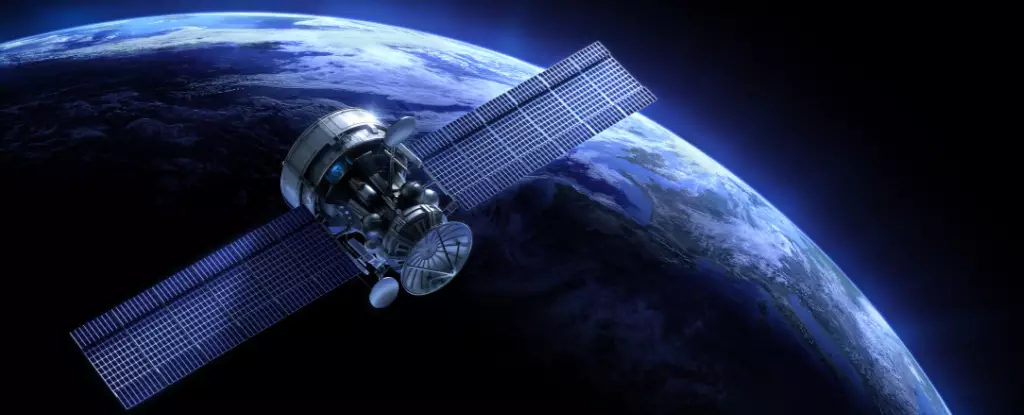US authorities recently imposed a landmark fine on television company Dish for their failure to adequately dispose of a satellite, marking a significant step in space debris enforcement. The Federal Communications Commission (FCC) announced on Monday that it had imposed a $150,000 penalty on Dish for the improper deorbiting of the satellite named EchoStar-7, which had been in orbit since 2002. This unprecedented fine demonstrates the FCC’s commitment to satellite policy efforts and serves as a warning to operators to comply with their obligations in the ever-growing space sector.
According to the FCC, Dish relocated the geostationary satellite EchoStar-7 to an altitude lower than agreed upon as it reached the end of its operational life. This negligent action raised concerns about potential orbital debris. The commission revealed that Dish had previously made a commitment in 2012 to elevate the satellite to a height of 300 kilometers (190 miles) above its operational arc. However, due to dwindling fuel reserves, Dish retired the satellite at an altitude just over 120 kilometers above the original arc, violating their agreement.
The unprecedented settlement between the FCC and Dish includes an admission of liability from the television provider, as well as an agreement to adhere to a compliance plan and pay the $150,000 penalty. Loyaan Egal, the chief of the FCC’s enforcement bureau, emphasized the significance of this breakthrough settlement, emphasizing the commission’s strong enforcement authority and the capability to enforce vital space debris rules. As satellite operations continue to grow and the space economy accelerates, ensuring operators’ compliance with their commitments becomes increasingly crucial.
In response to the FCC’s enforcement actions, Dish released a statement that seemingly challenged the commission’s disposal requirements. The company argued that the FCC’s enforcement arm failed to identify any specific orbital debris safety concerns regarding EchoStar-7. Dish’s spokesperson highlighted that the satellite in question was an older spacecraft explicitly exempted from the FCC’s rule requiring a minimum disposal orbit. The television provider sought to emphasize its strong track record of safely operating a large satellite fleet and its commitment to fulfilling its responsibilities as an FCC licensee.
The issue of space debris is a growing concern worldwide, prompting regulatory bodies to implement measures to mitigate its potential consequences. The Federal Aviation Administration (FAA) recently revealed its intentions to address the issue by imposing regulations on private companies. These regulations would require the proper disposal of upper stages of rocket launch vehicles by returning them to Earth’s atmosphere or relocating them to less congested “graveyard orbits.” While the FAA’s regulations are still under consideration, the requirement already exists for government space missions. The FAA highlights that the accumulation of orbital debris poses a considerable risk of collisions and cluttered orbits, endangering both human spaceflight and vital satellite operations.
According to the European Space Agency, there are approximately one million pieces of debris larger than a centimeter orbiting Earth. These pieces of debris are large enough to potentially “disable a spacecraft” and are already causing problems. In January of last year, a Chinese satellite narrowly avoided a collision, highlighting the immediate dangers posed by space debris. Furthermore, in 2021, a five-millimeter hole was knocked into the International Space Station’s robotic arm, underscoring the risks even small objects can pose. With satellites playing an irreplaceable role in modern-day technologies such as GPS, broadband, and banking data, the potential for collisions in space carries significant implications for our daily lives here on Earth.
The FCC’s landmark fine against Dish serves as a wake-up call to operators in the space industry regarding the importance of adhering to proper disposal protocols. As the number of satellites in orbit grows and the dependence on space-based technologies intensifies, stringent enforcement of space debris regulations becomes imperative. By holding negligent operators accountable, the FCC and other regulatory bodies endeavor to ensure the sustainability and safety of both space exploration and critical services on Earth.


Leave a Reply